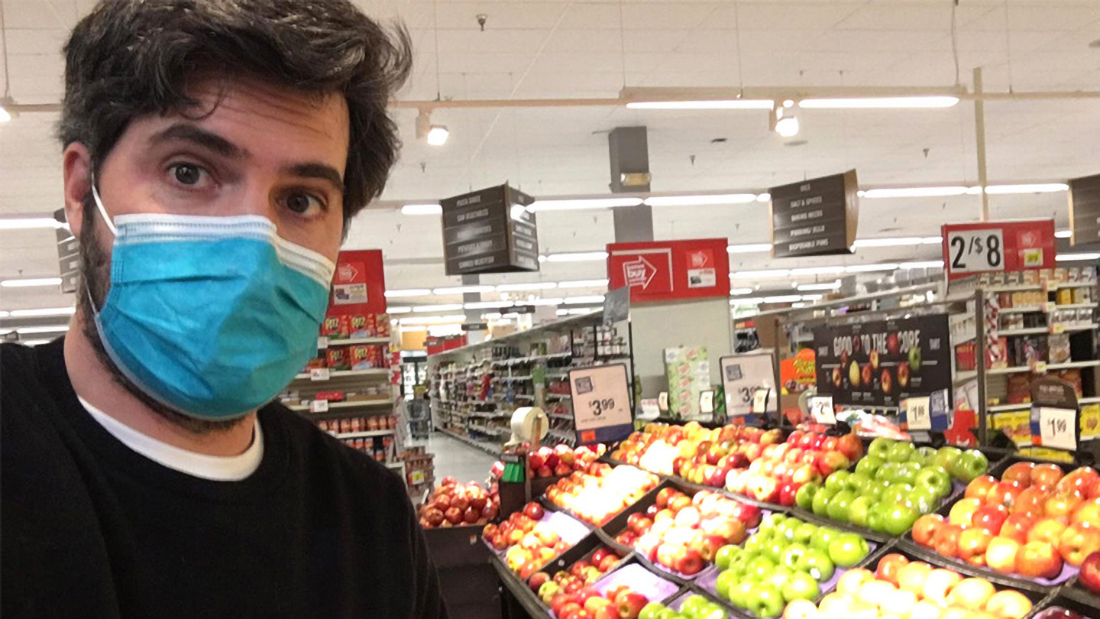
19 May Bringing out the best in us during the pandemic
By Dr. Francis Collins, NIH
Sheltering at home for more than two months has made many of us acutely aware of just how much we miss getting out and interacting with other human beings. For some, the coronavirus disease 2019 (COVID-19) pandemic has also triggered a more selfless need: to be a good neighbor to the most vulnerable among us and help them stay well, both mentally and physically, during this trying time.
The term “good neighbor” definitely applies to Pablo Vidal-Ribas Belil, a postdoctoral fellow at NIH’s Eunice Kennedy Shriver National Institute of Child Health and Human Development (NICHD). Though Vidal-Ribas has his hands full caring for his 4-year-old son in their condo, which is located near NIH’s main campus in Bethesda, MD, he wasn’t too busy to notice that some of his neighbors were in need of help.
Vidal-Ribas extended a helping hand to pick up groceries and prescriptions for the older woman downstairs, as well as several more of his elderly neighbors. He and other concerned neighbors also began enlisting more volunteers to join a neighborhood coronavirus task force. There are now up to 30 volunteers and sometimes hold virtual meetings.
To try to reach everyone in the more than 950-unit Parkside Condominium community, the group coordinated its activities with the help of the management office. They also issued flyers and email messages via the neighborhood list serv, offering to assist people at greatest risk for COVID-19, including seniors and those with compromised immune systems or other serious conditions, by shopping for essential items and dropping the items off at their doors.
The personal interest and care of Vidal-Ribas also comes with medical expertise: he’s a clinical psychologist by training. Vidal-Ribas, who is originally from Barcelona, Spain, came to the United States four years ago to work with an NIH lab that specializes in the study of depression and related conditions in young people. Last year, Vidal-Ribas moved to NICHD as a Social and Behavioral Sciences Branch Fellow, where he now works with Stephen Gilman. There, he explores prenatal and early developmental factors that contribute to attempts at suicide later in life.
His expertise as a psychologist has come in handy. Vidal-Ribas has found that many of the individuals requesting help with grocery items or prescriptions also want to talk. So, the team’s efforts go a long way toward providing not only basic necessities, but also much-needed social and emotional support. Read more …



